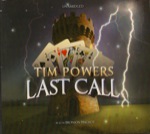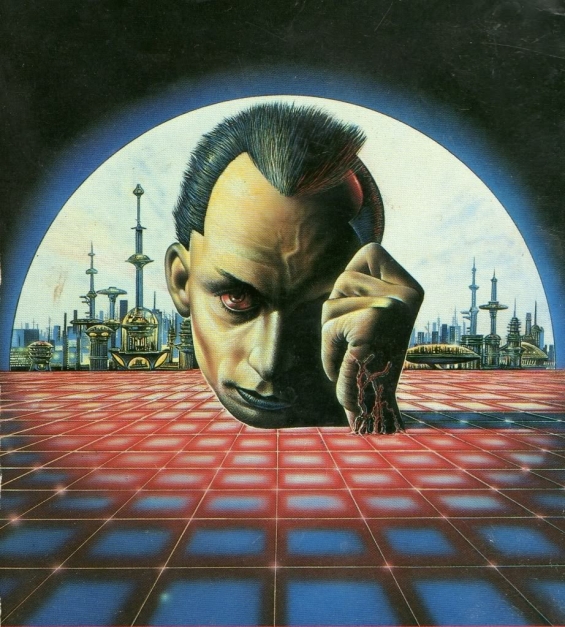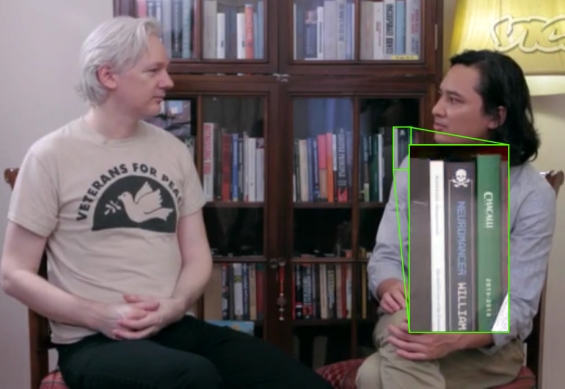

 The SFFaudio Podcast #409 – The Grove Of Ashtaroth by John Buchan, read by Mr Jim Moon. This is a complete and unabridged reading of the short story (1 hour 5 minutes) followed by a discussion of it (by Jesse, Mr Jim Moon, and Paul)
The SFFaudio Podcast #409 – The Grove Of Ashtaroth by John Buchan, read by Mr Jim Moon. This is a complete and unabridged reading of the short story (1 hour 5 minutes) followed by a discussion of it (by Jesse, Mr Jim Moon, and Paul)
Talked about on today’s show:
1910, obsession, kinda gross, fundamentally based on racism, Jewishness, troublesome, H.P. Lovecraft, a racist filter, horror as fear of the other, the same intellectual climate, racial theory, a sensitivity alarm bell, scare not offend, on the cusp, an off note, Sax Rohmer, yellow peril, Fu Manchu is the hero, the Escape audio drama adaptation, Harlan Ellison, Red Hook territory, uncomfortably of its time, its about race, his friend’s changing disposition, the Saxon Mother vs. the “strong wine of the east”, that logic is still in force, 1/64th Cherokee, if this was set in the highlands…, natural peace, a benevolent supernatural force, white hat vs. black hat, the theme of colonialism vs. race and heredity, imperialism, two-fisted adventure vs. poetry and philosophy and pathos, the landscape, the skyline, the love that Lawson has is reflected by Buchan himself
At midday it cleared, and the afternoon was a pageant of pure colour. The wind sank to a low breeze; the sun lit the infinite green spaces, and kindled the wet forest to a jewelled coronal. Lawson gaspingly admired it all, as he cantered bareheaded up a bracken-clad slope. ‘God’s country,’ he said twenty times. ‘I’ve found it.’ Take a piece of Sussex downland; put a stream in every hollow and a patch of wood; and at the edge, where the cliffs at home would fall to the sea, put a cloak of forest muffling the scarp and dropping thousands of feet to the blue plains. Take the diamond air of the Gornergrat, and the riot of colour which you get by a West Highland lochside in late September. Put flowers everywhere, the things we grow in hothouses, geraniums like sun-shades and arums like trumpets. That will give you a notion of the countryside we were in. I began to see that after all it was out of the common.
beautiful writing, the sensual description of Lawson,
Being a fair man, he was gloriously tanned, and there was a clear line at his shirt-collar to mark the limits of his sunburn. I had first known him years ago, when he was a broker’s clerk working on half-commission. Then he had gone to South Africa, and soon I heard he was a partner in a mining house which was doing wonders with some gold areas in the North. The next step was his return to London as the new millionaire — young, good-looking, wholesome in mind and body, and much sought after by the mothers of marriageable girls. We played polo together, and hunted a little in the season, but there were signs that he did not propose to become a conventional English gentleman. He refused to buy a place in the country, though half the Homes of England were at his disposal. He was a very busy man, he declared, and had not time to be a squire.
a bromance at the least, homoeroticism, nudity or flannels, naked on the veldt, the gorgeousness of the writing, T.S. Eliot, The Wasteland, The Lovesong of J. Alfred Prufrock, a miniseries on Cecil Rhodes, the empire builder, Rhodesia, like Rhodes Lawson made his money in mining, Buchan knew Rhodes, a giant country estate, Buchan is the name of the unnamed narrator in the audio drama adaptation, biographies, First World War Hidden History blog,, at the center of spying and propaganda, Lord Tweedsmuir, use in a role playing game, Kim Philby, the old boy network, the revolving door policy, no longer conspiracy, no longer tin-foil hat territory, rewarded with the Governorship of Canada, nobility by appointment, “gone to the wall”, with the riff-raff and the hoi-poloi, “gone to seed”, a pun, the fertile and lush garden, the flower of his youth, a railroad from South Africa to Egypt, nursemaided by Rhodes, illness,
Then we went to work to cut down the trees. The slim stems were an easy task to a good woodman, and one after another they toppled to the ground. And meantime, as I watched, I became conscious of a strange emotion.
It was as if some one were pleading with me. A gentle voice, not threatening, but pleading — something too fine for the sensual ear, but touching inner chords of the spirit. So tenuous it was and distant that I could think of no personality behind it. Rather it was the viewless, bodiless grace of this delectable vale, some old exquisite divinity of the groves. There was the heart of all sorrow in it, and the soul of all loveliness. It seemed a woman’s voice, some lost lady who had brought nothing but goodness unrepaid to the world. And what the voice told me was, that I was destroying her last shelter.
That was the pathos of it — the voice was homeless. As the axes flashed in the sunlight and the wood grew thin, that gentle spirit was pleading with me for mercy and a brief respite. It seemed to be telling of a world for centuries grown coarse and pitiless, of long sad wanderings, of hardly-won shelter, and a peace which was the little all she sought from men. There was nothing terrible in it. No thought of wrongdoing. The spell, which to Semitic blood held the mystery of evil, was to me, of a different race, only delicate and rare and beautiful.
poor spirit, parallel to an extinction, running away from the destruction of man, reading the story from Lawson’s point of view, what is he doing there?, an alabaster moon, blood sacrifice, depleting life force, a lonely deity, The Call Of Cthulhu role playing game, a temple ruin, an abandoned mine, a tiki-fetish, some ancient horrible power, maybe we’ve done wrong here,
And then my heartache returned, and I knew that I had driven something lovely and adorable from its last refuge on earth.
the last doorway, the model for this tower, the Great Zimbabwe, where could I read up on that?, a country house with a mock temple: “the folly“, druid orders, cheese rolling, a week later, keeping a secret, dropsy or yellow fever, the revenge of the land, disease, looking down on the tropics, three years, scarfe, natural beauty, that library, the moon of alabaster, the bird statuettes, turtle doves, green doves, auk-like bird carvings, everything is going extinct, the sin at the story’s end, the two-fisted action, shotguns make short work, the birds on the pyre, salting the earth, the Punic wars, improve on Josiah, dynamiting a priceless ancient temple, a “land without history”, purpose of visit: colonialism, sad but true, ancient ruins of Africa, ancient Greece, ancient Egypt, the character names all end in “son”: Lawson, Isaacson, Jobson (the factor), the Hudson’s Bay Company, the East India Company, wagons, more money than the Queen, Ming pots, a night watchman, the natives won’t go to the temple, local folk, indemnification, Adamson, half-English, Biblical naming, The Skids, Richard Jobson, Travers, Lowson, H.P. Lovecraft’s Supernatural Horror In Literature, building or rebuilding an ancestral home, The Moon Bog, The Rats In The Walls, they have the exact same structure, illness, lifted up into the sky, Ashtaroth the Moon goddess, Captain Norris, Magna Mater, Exham Priory, “what on Earth is going on here man?”, Out Of The Earth by Christine Campbell Thomson (aka Flavia Richardson), standing stones, mummy fiction, atavism, reverting to ancestral type, seeing things backwards, the industries that allow you to work, an inversion, an environmental horror story, silver bark, a beautiful image, Ishtar -> Ashtaroth, male and female spelling, an interest in weird fiction, one of the big names, scant detail, The Golden Bough, To The Devil A Daughter (1976), Astarte, a punny title, if this is a true story…, the covenant, the “Call of Ashtaroth”, the blood ritual, body horror, a psychic impasse, a taste, is there more than one force at work?, Of Withered Apples by Philip K. Dick, an apple tree, a bad farm, eating a withered apple is a bad move, the call of nature, it wants you, its using you, the last portal through, not of this Earth, a moonbeam, She by H. Rider Haggard, elegiac and wistful, a pleasure to read, layers and layers, old school weird fiction, layers of questioning and ambiguity, homages and reinterpretations, Neil Gaiman, Warren Ellis, Alan Moore, Michael Moorcock, no clear lines, ambiguity comes to the fore, vs. early 20th century polemic, it would be an amazing comic book, visually stunning, Sir Arthur Conan Doyle, the albatross of The Thirty-Nine Steps, literary highways and byways, The Moon Endureth, Christopher Hitchens essays,
“In a remarkable short story, ‘The Grove of Ashtaroth,’ the hero finds himself obliged to destroy the gorgeous little temple of a sensual cult, because he believes that by doing so he will salvage the health and sanity of a friend. But he simultaneously believes himself to be committing an unpardonable act of desecration, and the eerie voice that beseeches him to stay his hand is unmistakably feminine.”
-Christopher Hitchens (The Atlantic Monthly, March 2004)
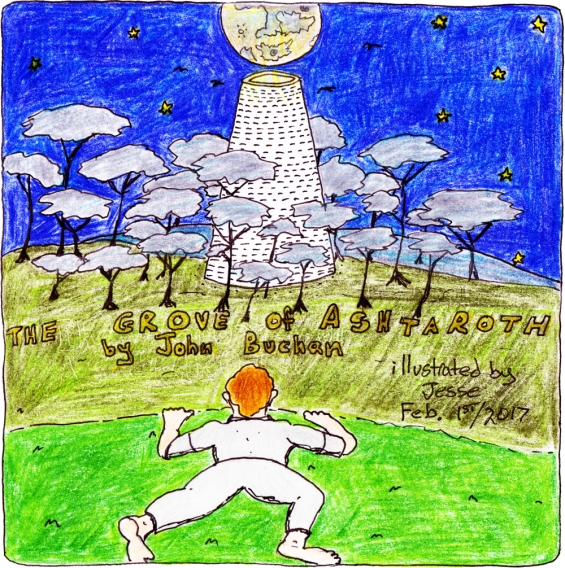
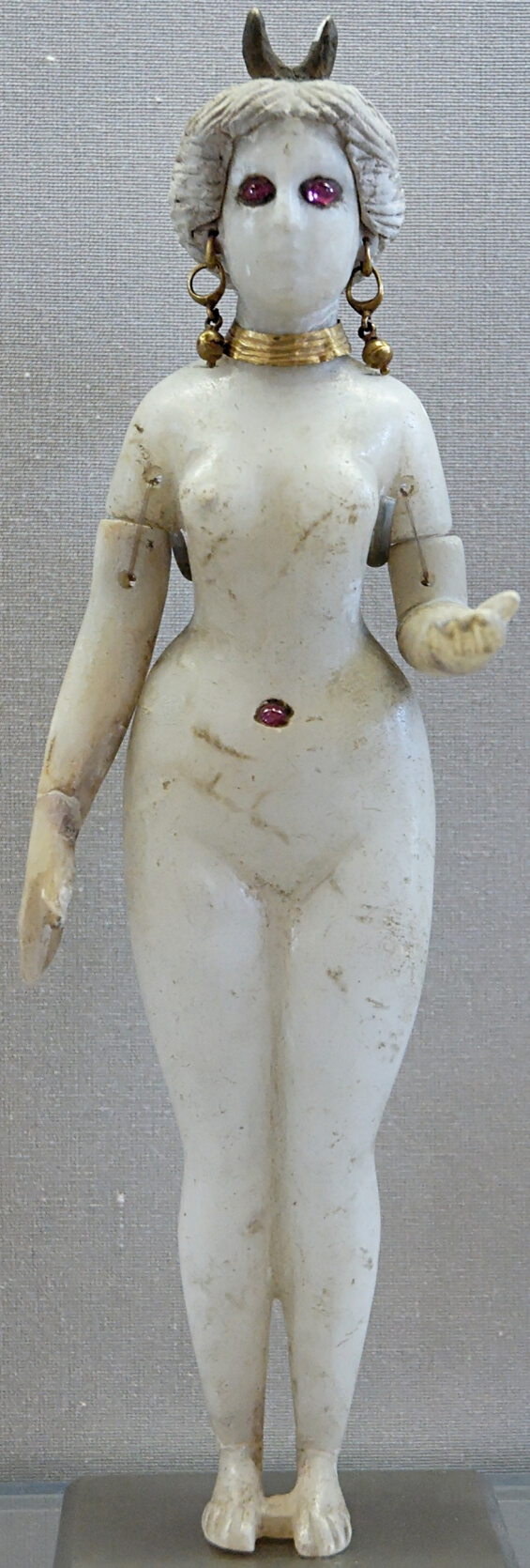
Posted by Jesse Willis

